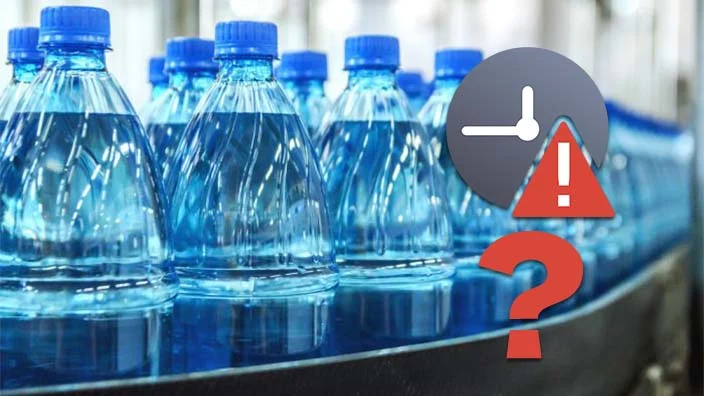As bottled water is much more common nowadays, and questions regarding the longevity of its shelf life may arise in your mind, making you wonder whether does bottled water go bad or does the bottled water expire over time, and or how to know about the expiry of the water, if it occurs.
In this article, we’re going to address various questions regarding the shelf life of bottled water and the purpose of the ‘best by’ date on water bottles. Additionally, this article also explains the factors that cause the bottled water to deteriorate, and the consequences of using contaminated bottled water has also been outlined, followed by some suggestions regarding what to do with the expired bottled water and how to better store bottled water for long.
Table of Contents
- Significance of knowing water expired or not?
- Does bottled water go bad over time?
- How does bottled water go bad?
- What does bottled water go state or go expire mean?
- How does bottled water that goes bad affect your health?
- What to do with an expired water bottle?
- The best way to store bottled water
- What About Water Bottled in Glass?
- Conclusion
- Frequently Asked Questions
Significance of knowing water expired or not?
We have to make so many significant choices regarding the intakes and foods we have in our daily life, prioritizing our health and well-being. Use of bottled water is central to our daily routines and using fresh, clean bottled water is important for our health.
Contrarily, using contaminated and expired bottled water can pose many hazards to our health. Thus, making informed decisions regarding using bottled water becomes crucial to our wellbeing. In the same manner; left over pizza cannot be used after it has become state, the detailed on the left over pizza has been given in another article titled ‘How Long is Leftover Pizza Good For’.
Does bottled water go bad over time?
Actually, the water inside the bottle or any plastic container isn’t the issue as far as its expiration is concerned because it’s a simple molecule which is composed of one oxygen atom and two hydrogen atoms and it doesn’t contain any proteins, sugar or any additives typically are the reasons that cause food to spoil.
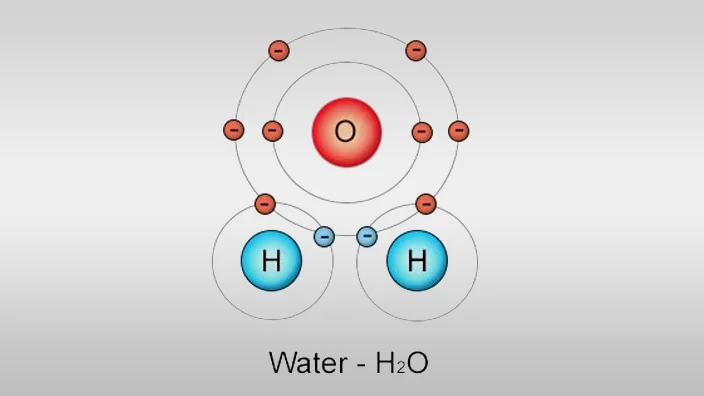
Thus, it doesn’t have any expiration date. What’s interesting is that the United States’ Food and Drug Administration doesn’t require to stipulate “use by” or “best by” dates on bottled water. So, if water doesn’t spoil, who’s the culprit behind bottled water getting spoiled?
How does bottled water go bad?
Certainly, water is not something that gets contaminated by itself inside a bottle or a plastic container, as more than 97% water is packed in plastic containers. In order to understand the implications of drinking water past its expiration date, you need to understand why water bottles have expiry dates or ‘best by’ dates, which is due to the particular reason of plastic in which water is contained or bottled.
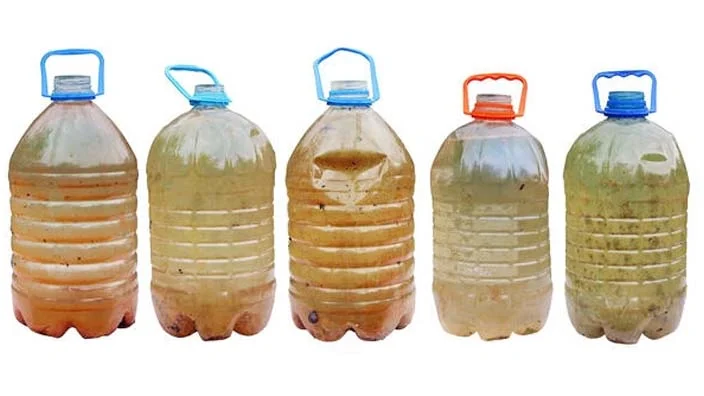
When bottled water begins to stale, it’s because of the bottle that begins to deteriorate and shed microscopic chemicals into it over time, which, as elaborated by Bryan Quoc Le who is a food chemist, makes water taste like a medicine or chlorine as well as causes serious health implications for its consumer.
Water bottles are mostly made from polyethylene terephthalate (PET) plastic, which has a tendency to release toxic chemicals like antimony when exposed to excessive heat that can damage the stomach and intestines of the consumer.
What does bottled water go state or go expire mean?
In order to keep you safe from such harmful chemicals, what bottled water companies do is they print two years ‘best by’ or expiration date on water bottles, although there isn’t any precise or exact way to make a prediction of the plastic leaching into the water and the expirations dates are more like a guess.
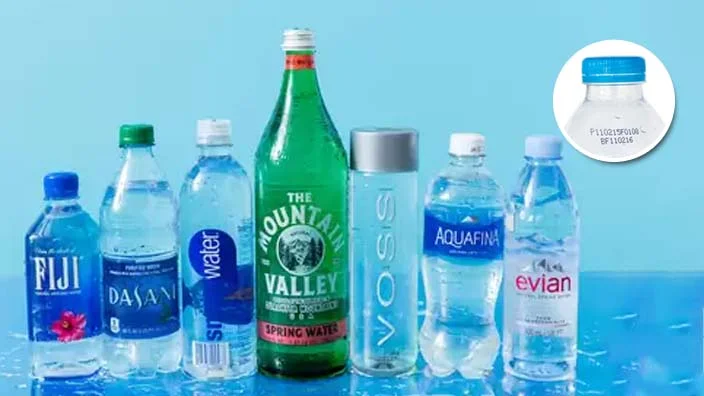
It’s possible that the bottled water gets spoiled before its expiration date when consistently exposed to excessive heat, or it may remain fine beyond its ‘best by’ date if its given proper temperature and kept from heat.
Unfortunately, most water bottles get exposed to excessive heat in the days of being purchased, especially when its summer time. For this particular reason, you could get yourself endangered when exposed to harmful chemicals in the water even before it reaches its ‘best by’ date. Thus, it’s important to make informed decisions when purchasing bottled water.
How does bottled water that goes bad affect your health?
As mentioned above, water in plastic bottles gets spoiled owing to harmful chemicals from plastic bottles leaching into water when exposed to excessive heat. So, it becomes important to be careful regarding water quality while using bottled water. However, some of the adverse effects appear in the given forms: -
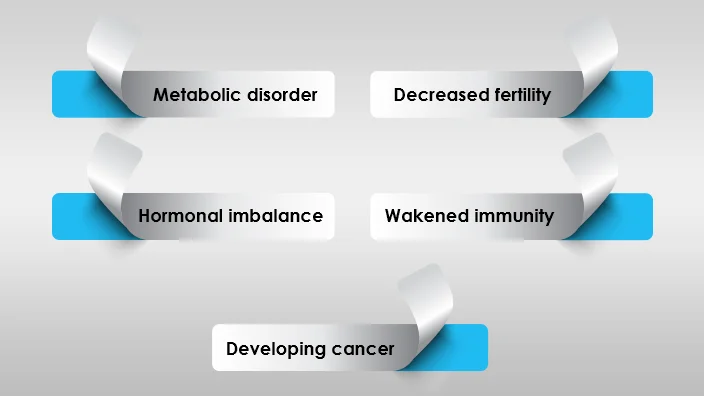
Suppose, you are doing some workout, especially in summer, and reach out to get a water bottle from anywhere you can to rehydrate yourself, its possible that you come across an expired water bottle that would be a harm to your body instead of a service. Thus, it’s better you take water with you in some reusable and safe water container in order to prevent consuming plastic leached in expired bottled water, which may pose various threats to your health, such as risk of developing a metabolic disorder, developmental affects like decreased fertility, hormonal imbalance, wakened immunity and developing cancer.
Unfortunately, plastic consumption can pose many more threats to your health. Therefore, its important for your health and wellbeing to minimize getting yourself exposed to plastic consumption as much as possible, beginning with the type of water bottles you drink water from.
What to do with an expired water bottle?
If you are an environmentally-conscious person, you might be perplexed, sometimes, when thinking of salvaging your expired bottled water. It may also occur in your mind to give the expired bottled water to your plants or pets, but it is also noteworthy that doing so may harm your pets and plants as well by the same contaminants that are dangerous to your health. They also need clean water. So, your idea of giving contaminated water to your plants or pets may backfire.
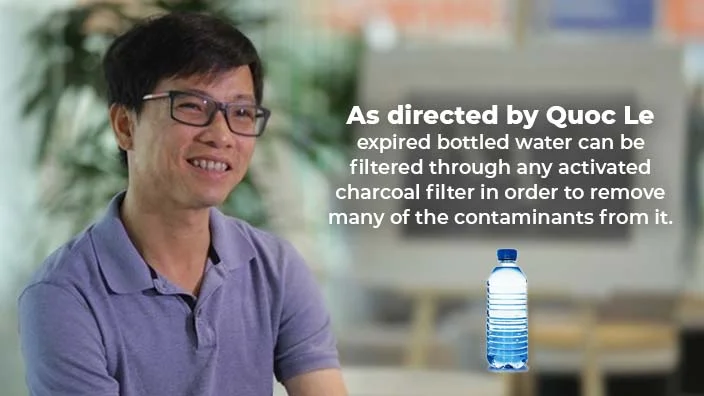
Additionally, if you are thinking that microbes have infested your bottled water, its better that you boil it for a while in order to kill almost all of the pathogens. If you are thinking of reusing your water bottle, it is not recommended by the experts to reuse it unless the packaging doesn’t allow it. Its due to the particular reason that germs from your mouth and fingers may transfer to the bottle and colonize there, turning into a danger to your health by the time you get to refill it.
Instead, its better you throw off your bottle into the recycle bin once you are done, avoiding scraping off the label or rinsing it. As said by IBWA that both the plastic and glass bottles are hundred percent recyclable.
The best way to store bottled water
Now, you have a pretty good idea that water is not something that gets contaminated by itself inside a bottle or a plastic container, but it’s due to the plastic bottle that begins to deteriorate and shed microscopic chemicals into it over time when it’s stored at high temperature for long.
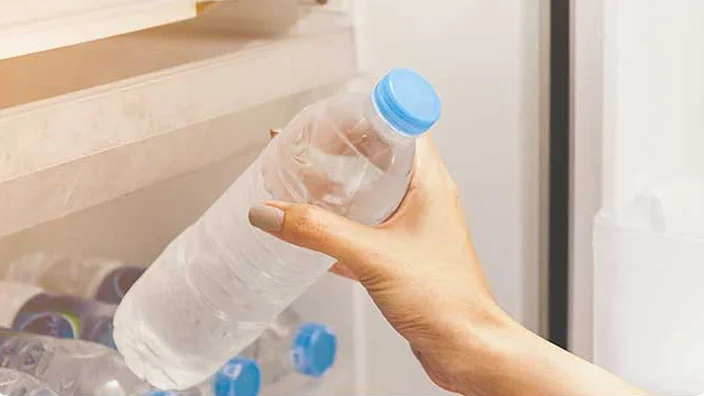
As directed by IBWA, the ideal temperature for water to be stored in plastic containers is at room temperature, at least, or in a cooler if possible and should be kept away from exposure to direct sunlight and household chemicals. Whether it’s sunlight or excessive heat, both can cause mold or algae to grow in the water, making it a yucky drinking experience.
So, it’s better that you don’t leave your plastic water containers in your cars when it’s Summer. If you store it properly, such as in pantry or dark place, away from sunlight, it’ll be healthy and delicious even past its expiration date and won’t go bad.
What About Water Bottled in Glass?
Instead of storing water in plastic containers, it’s far more beneficial to use glass containers for water as it is made of natural materials and the danger of inorganic chemicals leaching into water is not there when it’s heated.
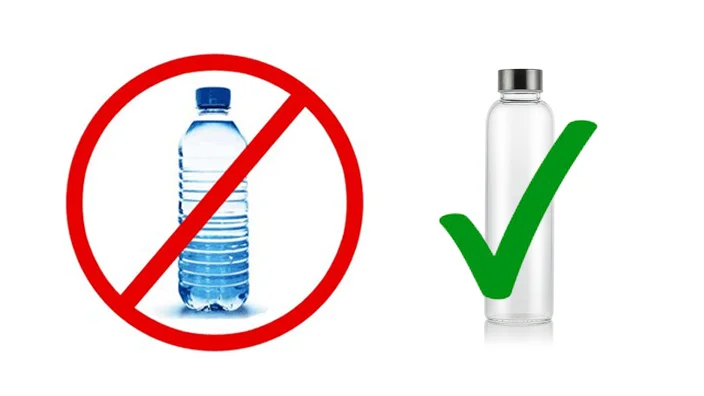
Thus, using glass water bottles is a good option for you as they are more environment friendly than plastic and they are endlessly reusable as well, offering the best overall sustainability because of the lack of chemicals used in it’s production. However, it’s still recommended by experts to store water bottles in glass containers in a cool place, away from sunlight in order to preserve its flavor and freshness.
Conclusion
To sum up, it’s not the water inside the bottle goes bad over time by itself but it’s due to the plastic, as more than 97% water is packed in plastic containers that deteriorates over time when exposed to excessive heat, causing harmful chemicals leach into the water and making it dangerous to health.
However, to answer the query ‘does bottled water go bad’ it is suffice to say that to keep you safe from such harmful chemicals, water bottled companies do is they print two years ‘best by’ or expiration date on water bottles, although there isn’t any precise or exact way to make a prediction of the plastic leaching into the water and the expirations dates are more like a guess.
Thus, it’s necessary that you make informed decisions while buying water packed in plastic containers for a healthy life, keeping yourself safe from the dangers of consuming plastic. Make it sure as well that you store it in a cool and dark place that will make it last even beyond its expiration date. Contrarily, exposure to direct sunlight, especially in summer, and excessive heat may cut short its shelf life. Using glass containers for water is also a good choice to avoid dangers of consuming plastic.
Frequently Asked Questions
How long can I keep bottled water?
Bottled water normally has two years expiration date, however, it can be used beyond its ‘best by’ date or expiration date if it’s stored properly in cool and dark place, and kept from exposure to excessive heat which causes the plastic to deteriorate, eventually allowing harmful chemicals to leach into the water.
Can you drink 20 year old bottled water?
It’s not water that expires over time but the plastic in which water is contained, especially when exposed to excessive heat, and harmful chemicals may leach into the water over time. Thus, it’s better not to drink spoiled water if you find any signs of damage or unusual odor, as the quality and taste of water may be compromised if stored for an extended period of 20 years.
How long is water safe in plastic bottles?
It’s not the water inside the bottle goes bad over time by itself but it’s due to the plastic, as more than 97% water is packed in plastic containers, that deteriorates over time when exposed to excessive heat, causing harmful chemicals leach into the water and making it dangerous to health. In order to keep you safe from such harmful chemicals, what bottled water companies do is they print two years ‘best by’ or expiration date on water bottles, although there isn’t any precise or exact way to make a prediction of the plastic leaching into the water and the expirations dates are more like a guess.
How do you know if a bottle of water is bad?
When you bottled water has an off-putting odor, reveals an unusual color or there is presence of floating particles, these are the signs of spoiled water, which may cause serious dangers to your health if you drink it. Additionally, bottled water exposed to excessive heat can also go bad shortly. So, it’s better you avoid drinking from it.

